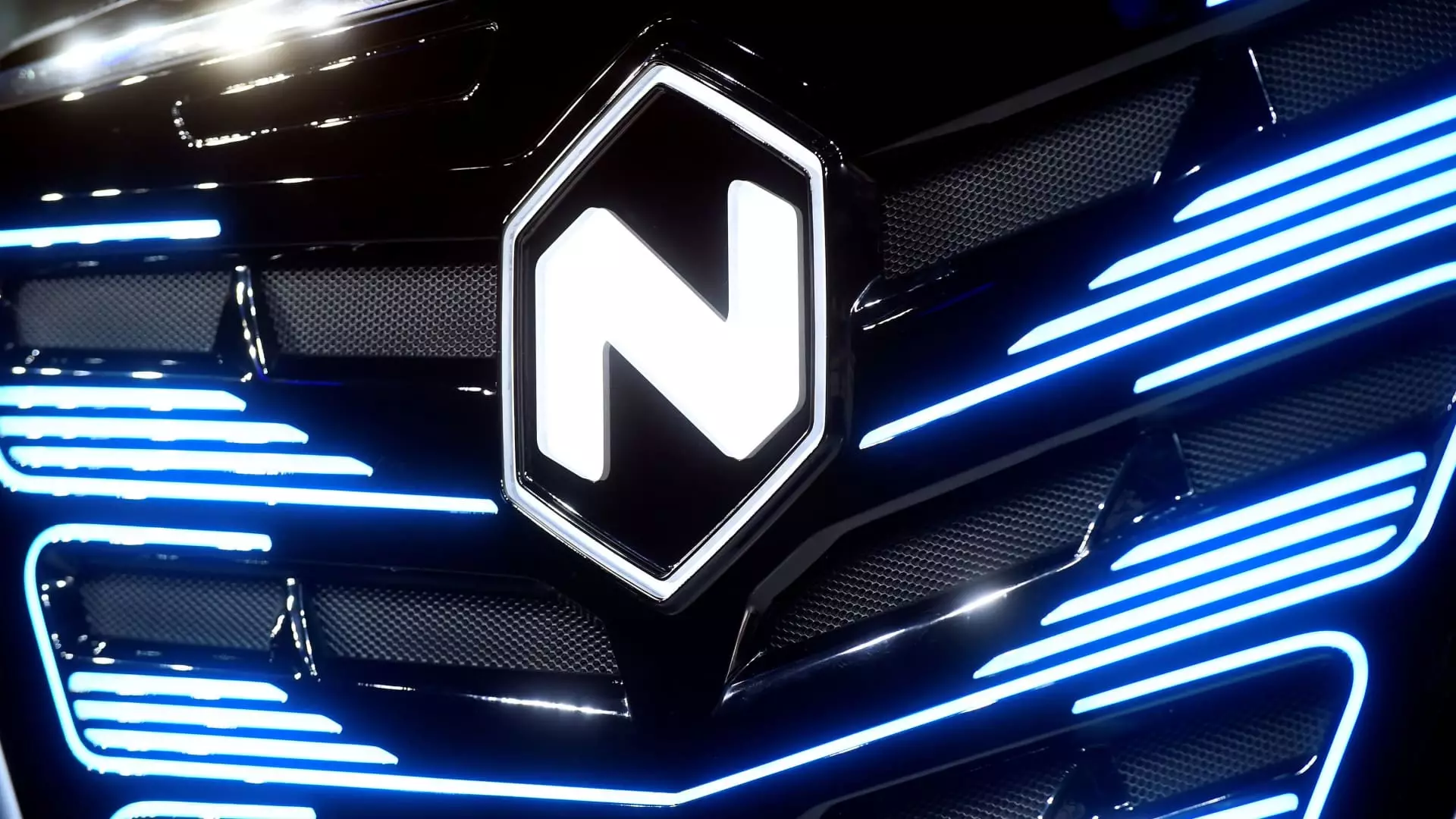Nikola Corp., once heralded as a transformative player in the electric vehicle (EV) market, has recently taken an alarming step into bankruptcy protection. Founded with ambitious goals to revolutionize clean transportation, Nikola initially ignited excitement among investors and analysts alike. At its zenith in 2020, the company reached an astonishing market valuation exceeding $30 billion, even surpassing industry stalwart Ford Motor Company. The allure wasn’t just in its vision but in high-profile partnerships, including a multibillion-dollar agreement with General Motors. Alas, the façade has crumbled, revealing a series of corporate missteps and ethical breaches that culminated in its current predicament.
The profile of Nikola was built on the bold promises of electric and hydrogen fuel cell technologies, particularly in semitruck production. The company’s claims resonated with a market yearning for innovation in sustainable transport and net-zero emissions. However, the enthusiasm swiftly turned into skepticism as operational realities emerged, including severe production shortfalls and a lackluster rollout of its flagship products.
The announcement of Nikola’s bankruptcy filing is not merely a consequence of isolated incidents or market fluctuations. Instead, it’s a portrait of broader systemic issues that plague many start-ups in the fiercely competitive EV landscape. CEO Steve Girsky has pointed to a myriad of “market and macroeconomic factors” as significant obstacles hindering the company’s sustainability. These challenges are not uncommon for new entrants into an industry rife with also-rans, but they underline a critical lesson about the volatile nature of speculative investments in the tech-heavy automotive sector.
Nikola’s financial outlook has become increasingly bleak. Reports indicate that the company has been grappling with cash shortages and must now pursue asset liquidation under court supervision, armed with only approximately $47 million to navigate the complexities of bankruptcy. The planned auction for its assets, should it receive court approval, marks a significant retreat from its ambitious growth trajectory. The company’s previous projections about cash flow and production capabilities have proven overly optimistic, resulting in disheartened stakeholders and investors.
Central to Nikola’s downfall has been the tainted legacy of its founder, Trevor Milton, whose charismatic leadership style shrouded numerous ethical concerns until they were brought to light by investigative efforts. Milton was ultimately convicted of wire fraud and securities fraud, undermining investor confidence and eroding trust in the brand. As accusations mounted, Nikola faced off with regulatory bodies and endured intense scrutiny, particularly after the damning report by short-seller Hindenburg Research.
Steve Girsky’s transition from chairman to CEO in 2023 promised a fresh start; however, it became clear that the damage was extensive. Although he has attempted to steer the ship back on course by enhancing transparency and maintaining operations, the dire financial state of Nikola has limited his options. The reality is that the heavy burden of prior mismanagement continues to weigh on the company’s prospects.
Lessons Learned from Nikola’s Journey
The story of Nikola Corp offers crucial insights for potential investors and existing entities within the automotive sector. It underscores the importance of transparency, accountability, and sustainable growth strategies in high-stakes markets. The thrill of new technology can easily blind stakeholders to the necessity of concrete deliverables and ethical conduct in corporate governance.
Moreover, Nikola’s experience illustrates the dangers associated with the relentless pursuit of rapid growth and speculative investments. Many newcomers to the EV sector have followed a similar trajectory, garnering initial celebratory valuations only to falter under mounting pressures. Tesla’s ascent has positioned it as a model of innovation, yet it serves as a stark contrast to companies like Nikola that failed to deliver on their promise.
As Nikola pursues its auction and sale process, the entire EV landscape remains watchful. The company’s trajectory serves as an urgent reminder of the risks involved in ambitious ventures and the potential repercussions of mismanagement. For the automotive sector, striving towards sustainability is a noble ambition—but it must be coupled with diligence, ethics, and realistic projections. As the industry evolves, the fall of Nikola should inspire a reevaluation of what constitutes genuine innovation and success in the years to come.

